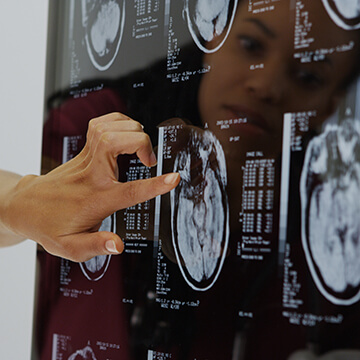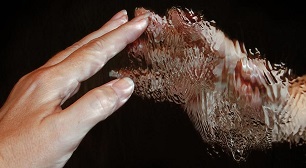College of Contemporary Psychology
Niiza Campus
OBJECTIVE.
To understand and express the nature of human beings through the three perspectives of mind, body, and mechanical image.
About
College of
Contemporary
Psychology
The College of Contemporary Psychology consists of two departments: the Department of Psychology and the Department of Body Expression and Cinematic Arts. Although the two departments are clearly unique in their curriculum, they are nevertheless intimately connected through the key concept of “the mind.”
Research on connections between the body, mind, and environment uses several key academic methodologies. The Department of Psychology uses the scientific method to study the human mind. Empirical data obtained from experiments, observations, and questionnaires are statistically analyzed to understand people’s ways of thinking. Meanwhile, the Department of Body Expression and Cinematic Arts is concerned with studying human thoughts and expressions as depicted in cinema, television, photography, and performance.
Students in the College of Contemporary Psychology carry out studies which lead to self-development and future employment opportunities, while pursuing the essence of human behavior and the complex inner workings of the human mind.
Departments
-
Department of Psychology
Students are encouraged to conduct scientific research to help understand the functions and mechanisms of the mind, which will in turn provide support for various psychological issues apparent in our modern society.
Features of the Department of Psychology—What does studying in this department involve?
1. Students will enroll in specialized classes early in the program and also will benefit from small-sized classes in their third and fourth years.
In their first year of study, students are allowed to enroll in specialized psychology courses while simultaneously learning the foundations of psychology. From their second year, students will learn the methodologies of psychological research by reading academic materials in English. In their third year of study, students will select seminars which suit their research interests, and conduct independent research while being enrolled in small-sized classes that are held exclusively for that purpose.
2. Students will study various fields of psychology, from fundamental to emerging areas of the study.
Students will study three main fields of psychology:
*Experimental psychology: measuring the mind using scientific methods such as experiments;
*Applied psychology: confronting various physical and mental problems apparent in real life; and
*Clinical psychology: providing physical and mental support, and promoting positive physical and mental health.
Building on these pillars of knowledge, students will also be studying emerging areas of psychological study, such as cognitive neuropsychology, applied behavioral analysis, psychosomatic medicine, and more.
3. Students will have access to a full complement of student laboratories and facilities for practical training and research.
In addition to 15 student laboratories (including darkrooms for visual experiments and soundproof rooms for auditory experiments), the department also possesses a full complement of facilities for practical training and research. The department will also provide a range of scholarly activities, including workshops for practical study necessary for specialized topics in psychology, and classes where students can learn research methodology.What abilities does this department cultivate?
Students in this department will develop the ability to:
*Understand human psychology.
Students studying in the department will acquire fundamental knowledge of psychology, including its history, major fields of study, theory, statistical methods, while at the same time improving their academic English skills.
*Plan and conduct research.
Students will learn current theories and methodologies necessary for psychological study and practical activities such as quantitative research, qualitative research, interviews, and tests. Additionally, students will develop their ability to plan and propose innovative research projects.
*Apply psychology to solve problems.
Psychological methods can be applied in many situations, such as those for issues regularly occurring in families, schools, and companies. In the Department of Psychology, students will learn how to use these methods and outcomes to solve problems that they may encounter in everyday life. -
Department of Body Expression and Cinematic Arts
Students will learn the human nature and mind-body relationship, and create new forms of artistic expression.
Features of the Department of Body Expression and Cinematic Arts—What does studying in this department involve?
1. A broad and deep study of the relationship between the cinematic arts and the body expression
In their first and second year of study, students will study the cinematic arts and body expression through fields such as philosophy, sociology, and living systems theory, while simultaneously experiencing and studying the relationship between the cinematic arts and the body expression using practical training in film production, dance, and performance.
2. A full complement of facilities, such as theater-style classrooms and a filming studio
The department houses state-of-the-art facilities, including fully-equipped theater-style classrooms, studio buildings, and loft-style classrooms that can be used as stages. The faculty comprises scholars, researchers, writers, artists, and other leading professionals.
3. Diverse workshops
The department also offers diverse workshops within each of the faculty’s specialty areas, including workshops in cinema, photography, advertising, performance, dance, and martial arts. Students will experience the meaning of cinematic arts and body expression as they learn the corresponding methodology, knowledge, and pathways associated with working in these fields.What abilities does this department cultivate?
1. Creative expression, ability to plan, and ability to communicate
Students will gain a solid foothold on fundamental theories and techniques associated with cinematic arts and body expression. From this foundation, students will then develop ways to express themselves, plan, and communicate. Theses abilities will also serve students in the future, as they go on to work in creative fields such as film production or advertising.
2. “Active knowledge” that evolves through practice
The curriculum is divided into lectures, seminars, and workshops. Integrating these three streams into a single program means that students will learn not just by thinking with their heads, but also by moving their bodies, while developing their creativity (active knowledge).
Intended learning outcomes
-

Students will use theoretical, technical, and practical approaches to answer fundamental questions about the nature of humanity. They will also acquire skills to critically analyze the effectiveness of these approaches.
-

Students will come to understand the complexity of modern life through rich practical study, and learn methods to express their creativity.
-

In the Department of Psychology, students will also gain a comprehensive understanding of the fundamental concepts in psychology by discovering and solving problems throughout their academic program. The solution to these problems will also be applied in everyday settings. The Department of Body Expression and Cinematic Arts completes the College of Contemporary Psychology by understanding the mind, body, and cinematic arts from a multifaceted perspective, focusing its academic pursuits on questioning the fundamental nature of humanity.
-

The Department of Body Expression and Cinematic Arts works to bring together wisdom of the whole of the College of Contemporary Psychology to understand the mind, body, and cinematic arts from a multifaceted perspective, basing its efforts on the fundamental question of the nature of humanity.
Learn more
For more information, please visit the links below.

